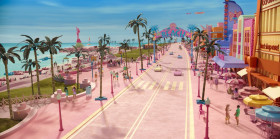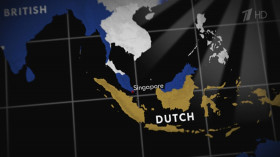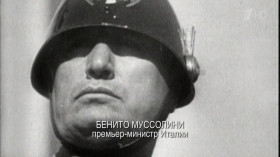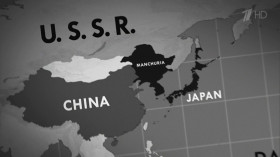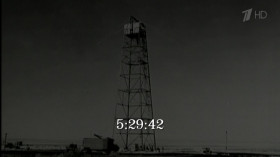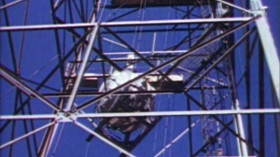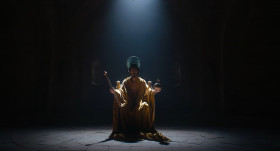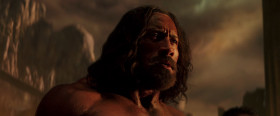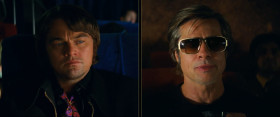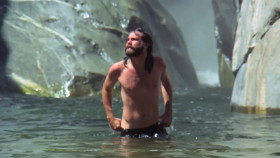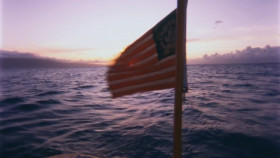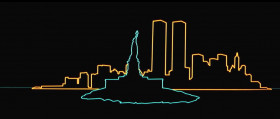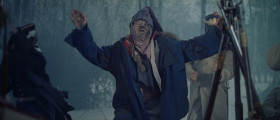In another great blow to the allied cause, Japan stunned the British Empire at Singapore in early 1942. The British had more troops defending Singapore than England itself. 80,000 commonwealth soldiers, many of them Australian, were taken prisoner. But in a sign of the true feelings of colonized peoples, of the 55,000 British Indian troops taken prisoner by the Japanese, 40,000 changed sides to fight for the Japanese.
Nearby in the darkness, something hangs atop a steel tower... a bomb. Today they will test it. The test is code-named Trinity. The inspiration... John Donne, Robert Oppenheimer's favorite poet. One of the premier scientists of his age, Oppenheimer loved literature and the desert of the Southwest. He was a peaceful man, who just happened to have created and coordinated the most destructive weapon in all history. <...> At 5:29 and 45 seconds, the bomb detonates. The light is brighter than the sun. Observing the explosion, Oppenheimer recalls a line from the hindu scripture, "Now I am become death, the destroyer of worlds." This terrifying weapon would launch the United States on a journey, turning the refuge of the founding fathers into a militarized state.
He was growing into middle age, and was living then in a bungalow on Woodland Avenue. He installed himself in a rocking chair and smoked a cigar down in the evenings, as his wife wiped her pink hands on an apron and reported happily on their two children. His children knew his legs, the sting of his mustache against their cheeks. They didn't know how their father made his living, or why they so often moved. They didn't even know their father's name. He was listed in the city directory as Thomas Howard. And he went everywhere unrecognized, and lunched with Kansas City shopkeepers and merchants, calling himself a cattleman or a commodities investor, someone rich and leisured who had the common touch. He had two incompletely healed bullet holes in his chest, and another in his thigh. He was missing the nub of his left middle finger and was cautious, lest that mutilation be seen. He also had a condition that was referred to as "granulated eyelids", and it caused him to blink more than usual, as if he found creation slightly more than he could accept. Rooms seemed hotter when he was in them. Rains fell straighter. Clocks slowed. Sounds were amplified. He considered himself a Southern loyalist and guerrilla in a Civil War that never ended. He regretted neither his robberies nor the 17 murders that he laid claim to. He had seen another summer under in Kansas City, Missouri, and on September 5th in the year 1881, he was 34 years old.
To some, Jim was a poet, his soul trapped between heaven and hell. To others, he was just another rock star who crashed and burned. But this much is true — you can't burn out if you're not on fire. The Crystal Ship Is Being Filled, A Thousand Girls, A Thousand Thrills... He would take his father another 10 years to say, "My son had a unique genius which he expressed without compromise".
The Vietnam war finally ends. The youth movement fades away, not to reappear. But that flash of protest, however brief, was real. It forged the consciousness of a whole generation.
And blessed be the people who in the hour of trial, without asking how others, acting by the rules, behaved in similar circumstances, simply and easily raise the first cudgel that falls into their hands and smite with it until the feelings of resentment and revenge in their souls change to scorn and pity.
